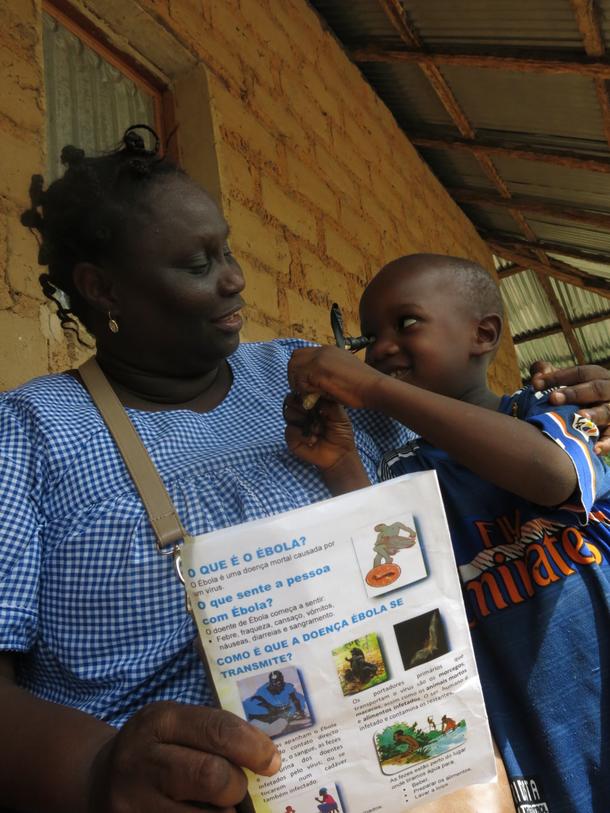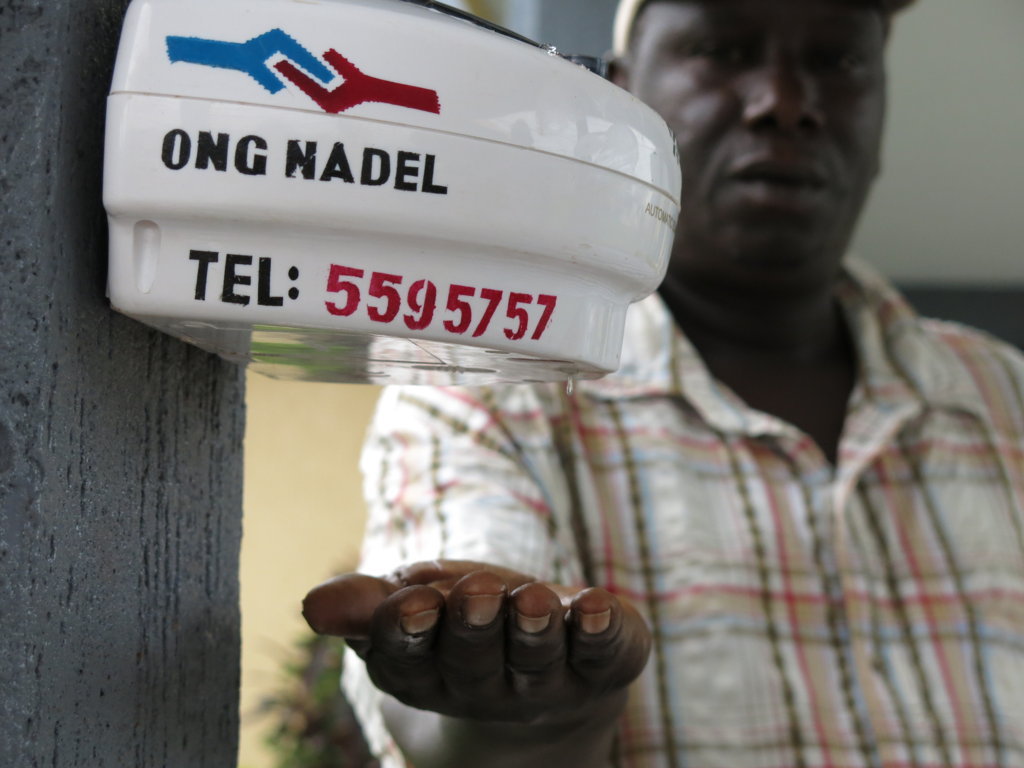In Guinea-Bissau, rural villages near the border of Guinea are at high risk for an Ebola outbreak, but community outreach efforts may make all the difference in protecting families and halting the spread of the disease.
“Don’t eat poop!” says Maria Cardoso, scowling fiercely.
The children gathered around her laugh, and after a pause she breaks into a smile. Now that she has everyone’s attention, she explains how the flies on your food may have dined on feces just moments before. Cardoso is a nurse with a local women’s organization in a remote region of Guinea-Bissau, and she spends her days walking from one cluster of houses to the next, spreading the word about hygiene and Ebola—and cholera, as well.
She talks about using latrines, washing hands with soap and bleach, avoiding the meat of wild animals, and the other rules of Ebola prevention. “Because I am a nurse and I know these communities, people listen to me,” she says. In truth, anyone would enjoy listening to her.
The group she works with is the Association of Women Workers, and at lunchtime in a nearby village, she and her colleagues host a distribution of soap, bleach, and other hygiene materials. Here in the rural areas that border Guinea—a country ravaged by Ebola—the threat of an outbreak is very real. But so is the need to take a break from serious worrying. The mood here is festive, with dancing and drumming and an Ebola-themed skit about a foolish man and his sensible wife. The women lead songs about Ebola—simple messages like “wash your hands,” but sung in beautiful harmony.
“People here are happy because we gave them the information they needed, and now they are getting hygiene kits. They are relieved,” says Lucete da Silva, the president of the association. The activities aren’t just for fun, she adds. “Singing, dancing, and theater are good ways to educate people.”
Da Silva’s group has been working closely with Oxfam partner NADEL, the National Association for Local Development, first on cholera and now on Ebola prevention.
“In 2012, there was a cholera outbreak here. It killed hundreds of people,” she says." Since NADEL started working in these villages, there have been almost no deaths from cholera. Now, people are taking the right steps. They are using latrines and washing their hands with soap at the most important times. They have changed their way of thinking.”
If Ebola crosses the border here into Guinea-Bissau, those changes could save lives.

NADEL is not only working near the land border with Guinea—it is helping the government keep the air border safe, as well, by supporting screening and hand sanitation at the national airport. While helping get the word out about prevention to the general population through flyers and radio broadcasts.
“In emergencies like this, we look to local and national organizations to lead the way, because they are completely committed to their communities, and they know how to deliver messages to them effectively,” says Michael Delaney, an Oxfam humanitarian response director. “Our job is to support their work and make sure they have the tools they need.”
As knowledge takes root in these communities, there is reason to hope that if Ebola strikes, the families here will be able to protect themselves.
“If we fight these diseases with safe practices,” says Cardoso, “we will win the battle.”
In Sierra Leone and Liberia, Oxfam’s programs are focused on working with communities, ensuring that people know how to protect themselves from Ebola and what to do if a suspected case is found. Oxfam is also supplying water, sanitation, and hygiene materials to treatment and community care centers, and supplying personal protective clothing for front-line medical staff and burial teams. Support our work.

